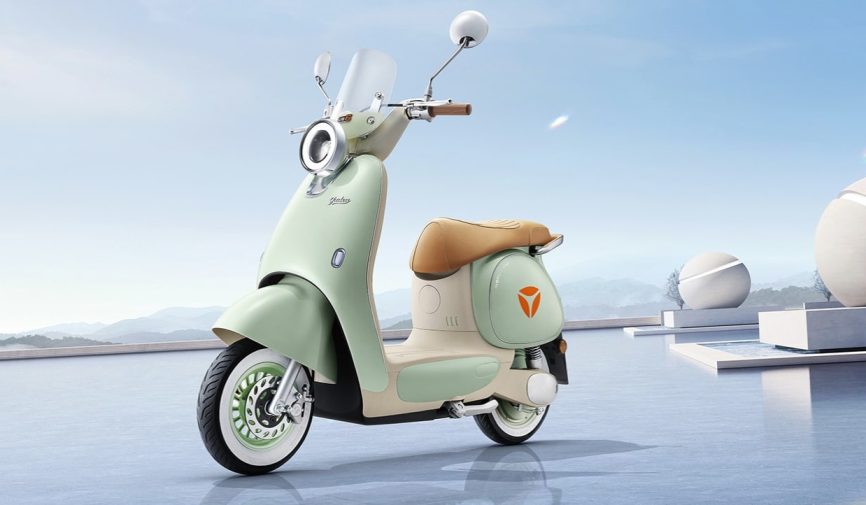Yadea released first electric scooters with sodium-ion battery pack in China
Chinese two-wheeler giant Yadea released its first scooters powered by the lithium-free sodium-ion battery pack. The e-bike can charge 80% in 15 minutes and supports 1.5 – 3C charging, according to Yadea.
– Advertisement –
During the Yadea Sodium Electric Vehicle conference in Hangzhou, the company started presales of four models equipped with sodium-ion packs ranging from 3,299 – 4,299 yuan (450 – 590 USD).
- Yadea Q1 sodium-ion: 3,299 yuan (450 USD)
- Yadea DE3 sodium-ion: 3,499 yuan (480 USD)
- Yadea G30 Lite sodium-ion: 3,699 yuan (500 USD)
- Guanneng Q50 soidum-ion: 4,299 yuan (590 USD)
- Equipped with TCS intelligent traction control system
The two-wheelers are equipped with Yuji Sodium Battery, which uses hard carbon material for its negative electrode, according to Yadea. The battery has an energy density of 145 Wh/kg and can be charged and discharged 1,500 times at normal temperatures, lasting up to five years with regular use. Additionally, the sodium battery retains over 92% of its capacity when discharged at -20°C.
– Advertisement –
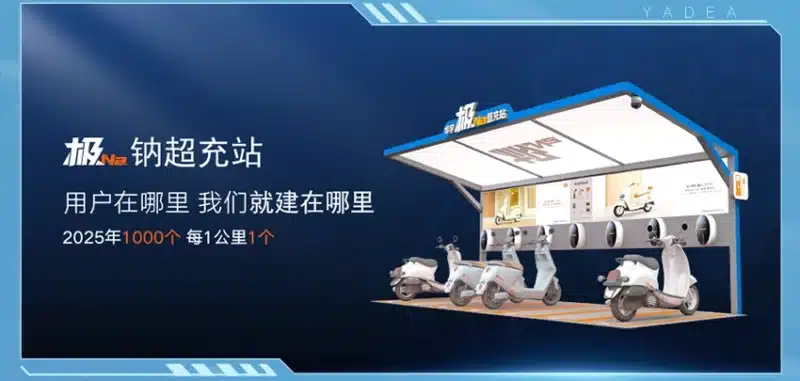
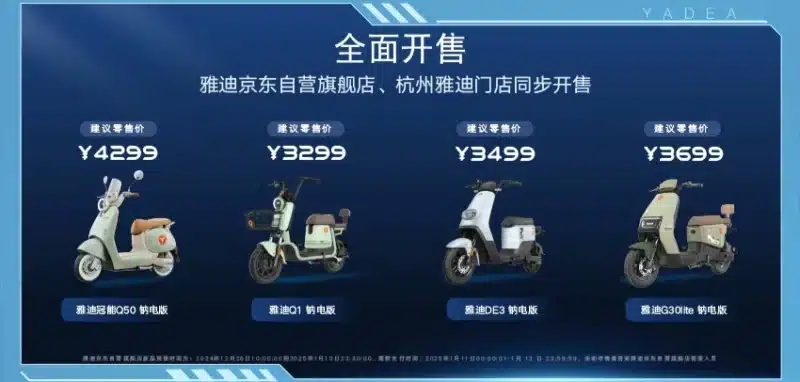
Yadea also launched “Huayu JiNo Supercharging Ecosystem.” Huayu is the name of its wholly owned subsidiary dedicated to sodium-i battery development. The company announced the superchargers under the new ecosystem are widely distributed in core areas. Part of the ecosystem is a JiNa Smart Platform, which can monitor the status of supercharging stations and lock in the problematic battery once detected.
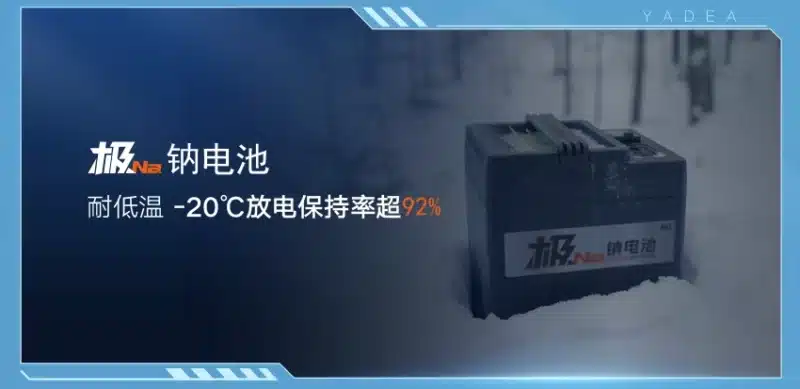
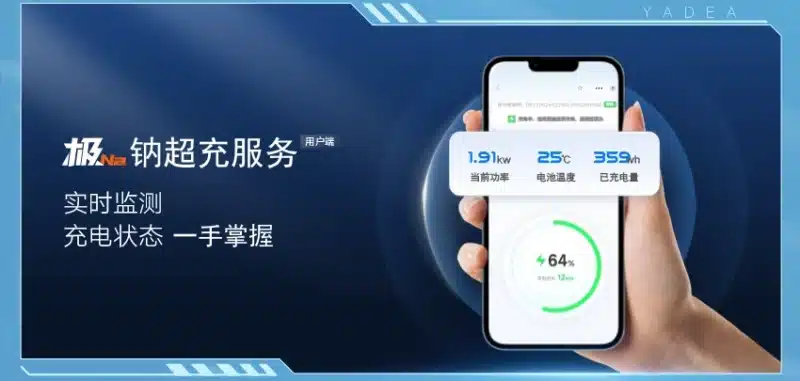
Yadea announced in December its cumulative two-wheeler sales surpassed 100 million units. Yadea Technology Group is a Chinese two-wheeler maker founded in 2001 and headquartered in Wuxi, Jiangsu Province.
Sodium-ion batteries are safer than lithium batteries and have a better ability to withstand cold temperatures. They have a slower discharge rate and are cheaper to produce while being more environmentally friendly. However, they have a slower charge rate, lower attainable voltage, and lower energy density. Thus, they will be used mainly in two-wheelers, small city cars, and stationary energy storage.
– Advertisement –
More companies are getting involved in sodium battery production in China. In January last year, BYD started constructing a 30 GWh sodium-ion battery plant in Xuzhou. The total investment is 10 billion yuan (1.4 billion USD). On November 18, 2024, CATL announced it would launch a second-generation sodium-ion battery in 2025.

